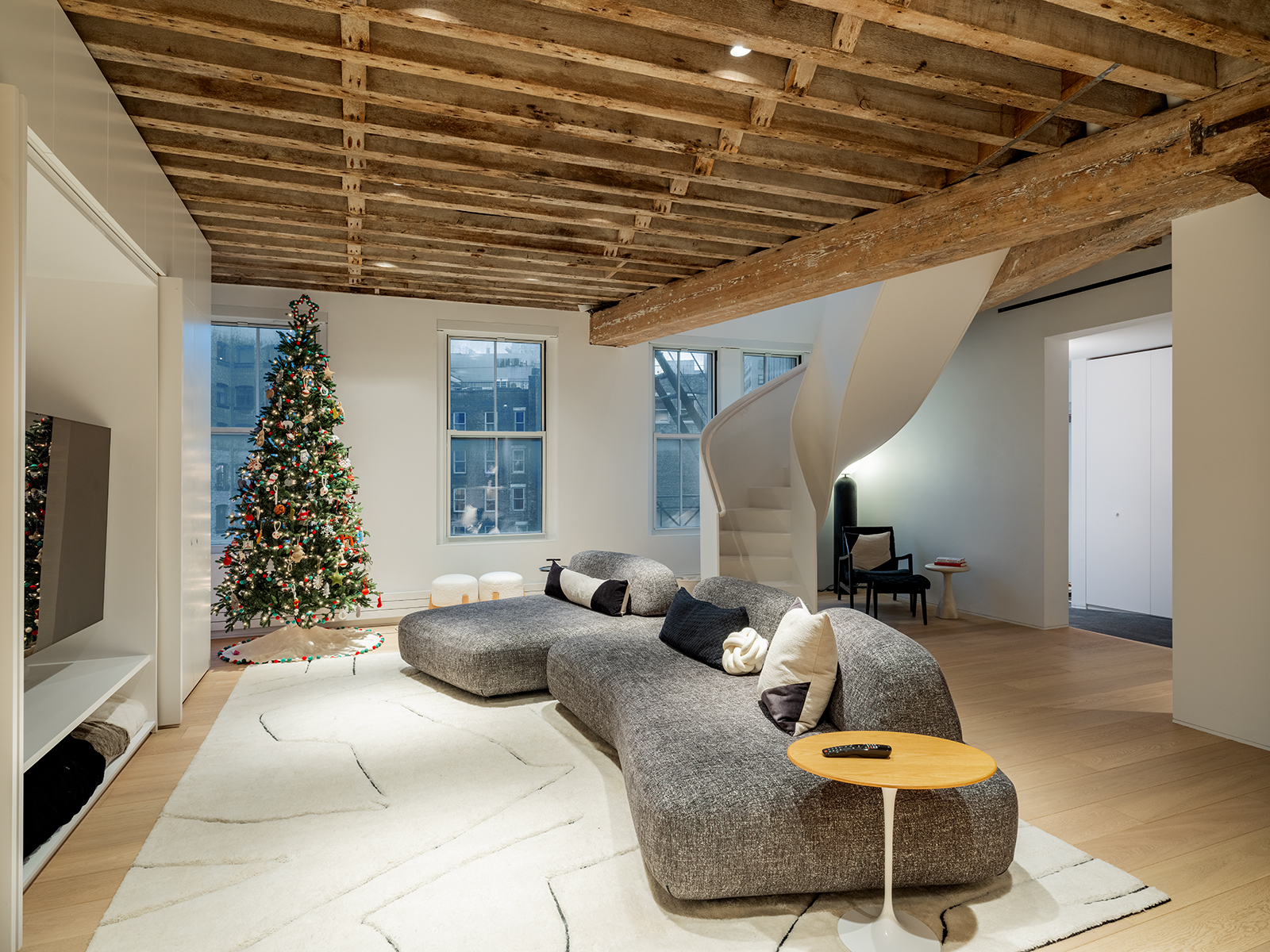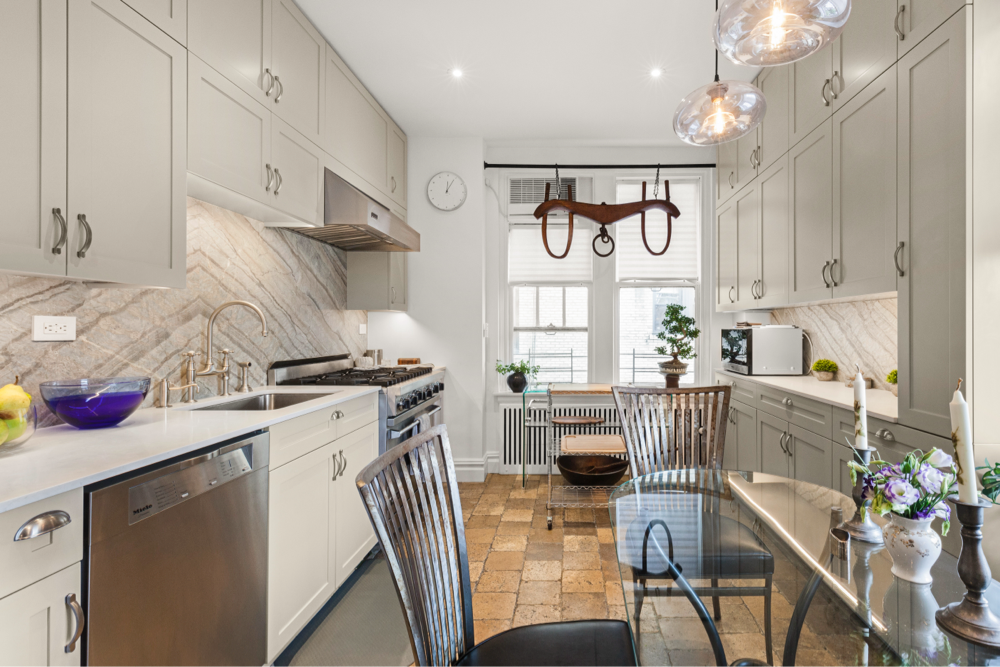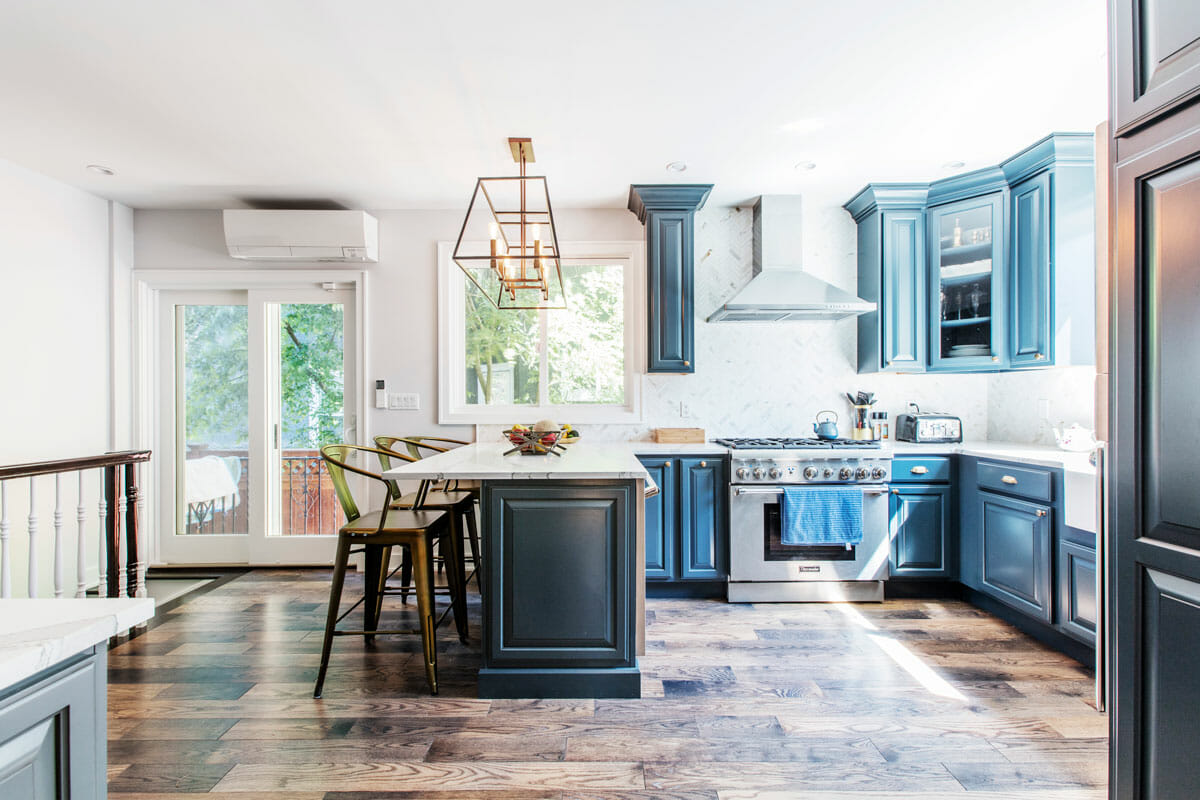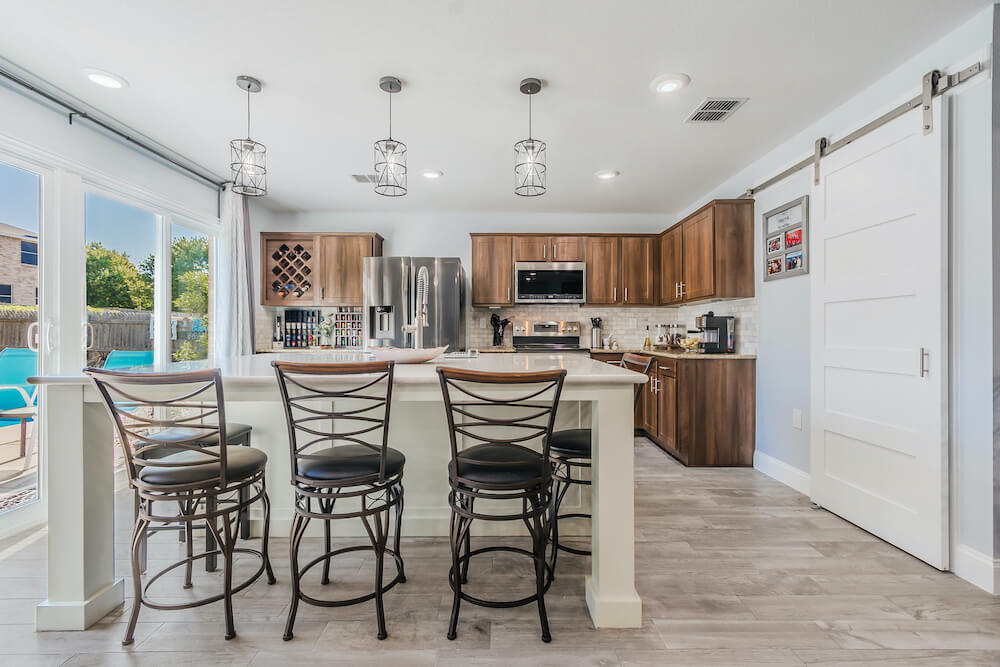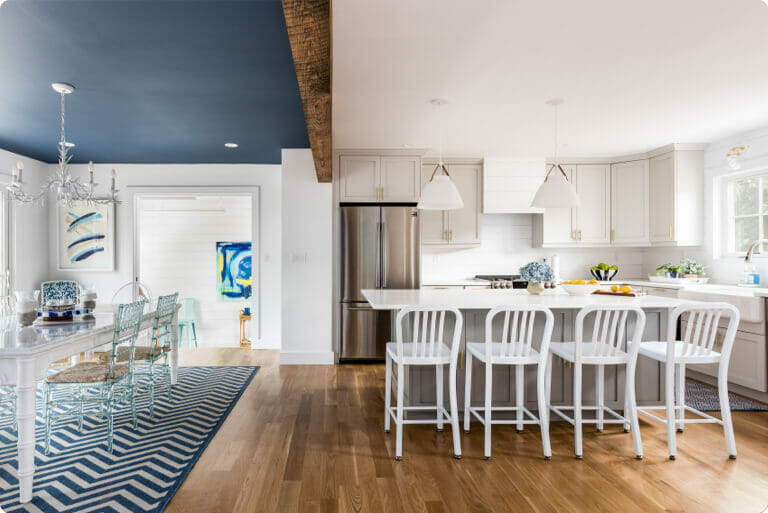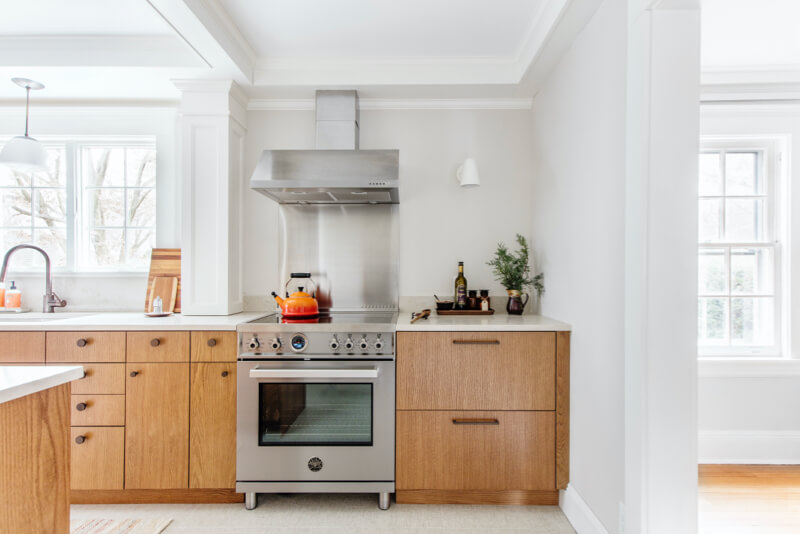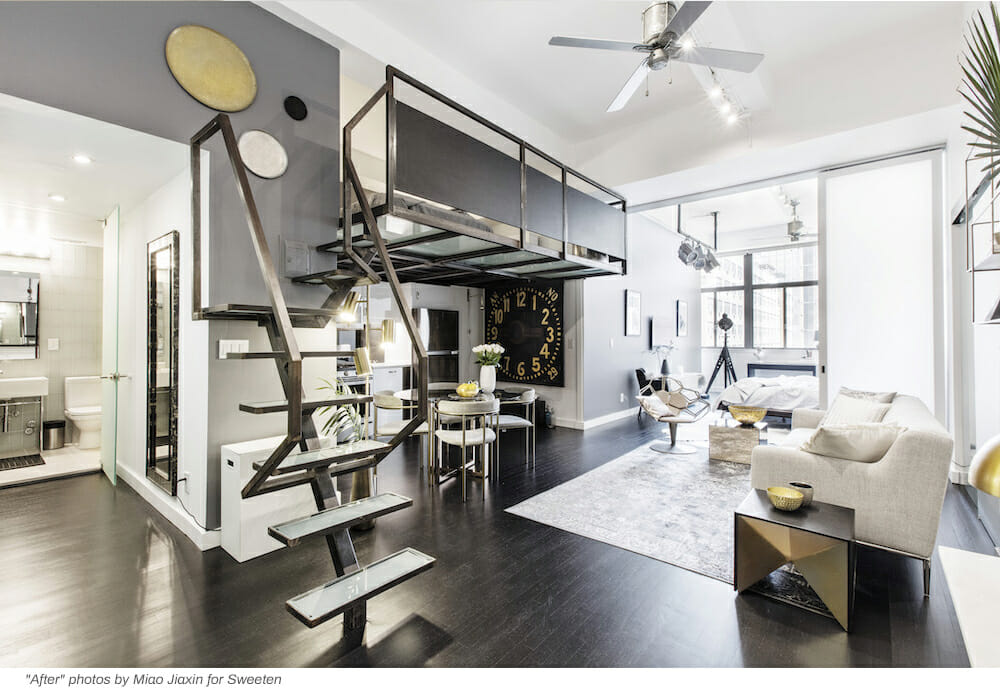How to Budget for a Full-Home Renovation in NYC
Planning a home renovation in New York City? Budgeting is crucial, and understanding square foot costs can be a valuable starting point. This guide explores the typical renovation costs per square foot in NYC, considering factors like project scope, finishes, and location. We’ll delve into basic and high-end renovations for kitchens, bathrooms, and entire homes, helping you create a realistic budget for your dream NYC renovation.
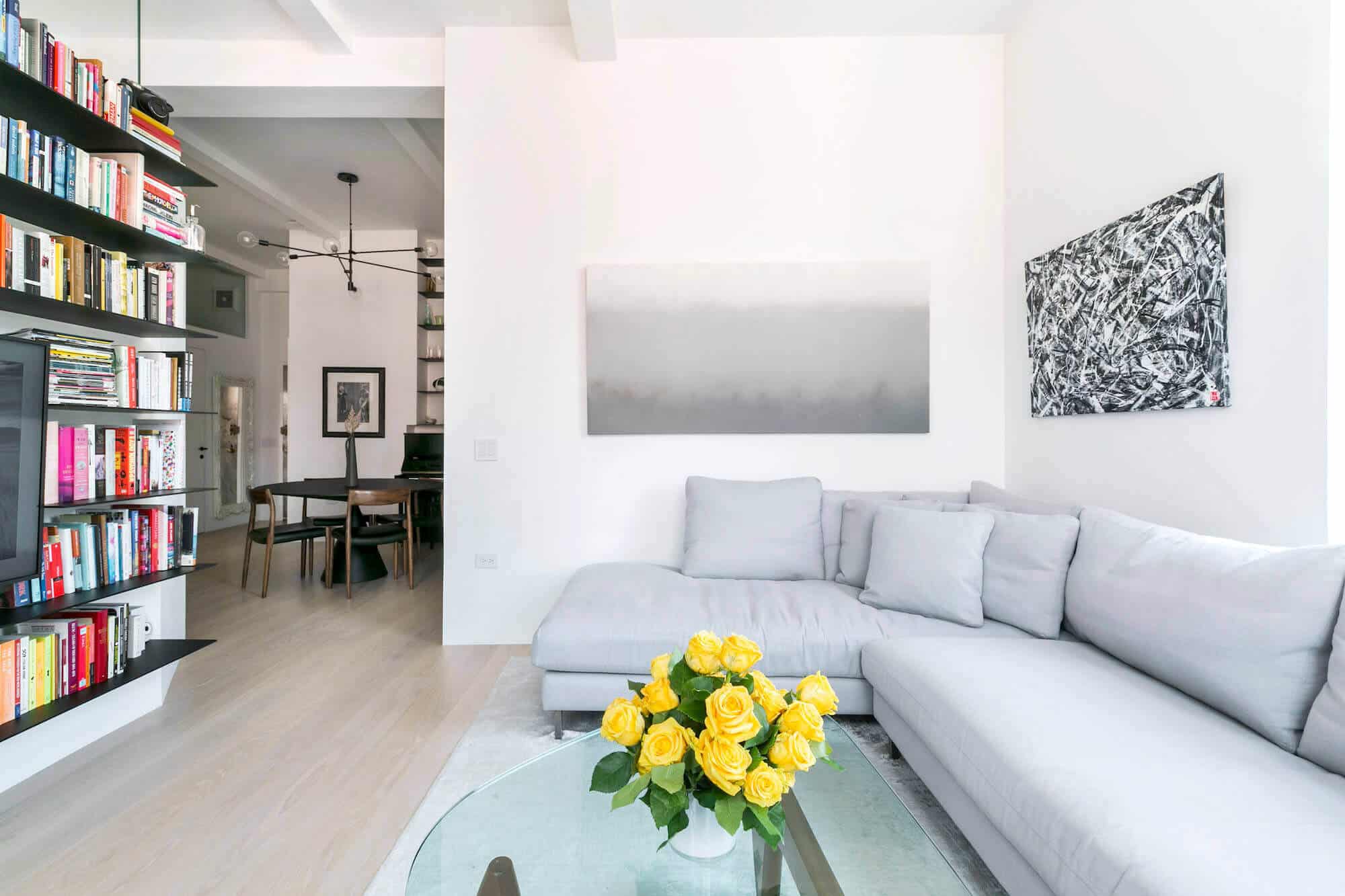
UPDATED: Click to read our most up-to-date NYC Kitchen Remodeling Costs here and NYC Bathroom Remodeling Costs here
According to Sweeten general contractors, the typical price range for an entire home remodel in NYC is $100 to $200 per square foot (psf). This standard starting range includes both labor and materials, and represents costs averaged across both “wet” spaces, like bathrooms and kitchens, and “dry” spaces, like living rooms, bedrooms, and offices. This is because wet space remodels tend to be far more expensive per square foot, with a higher density of materials, finishes, and specialized labor (think plumbing, tiling, and more).
Here’s a more specific breakdown of typical NYC home renovation costs:
- Full-home renovation in NYC: $100—$200 psf
- Dry spaces: $30–$50 psf
- Wet spaces: Baths start at $400 psf; kitchens start at $300 psf
- Gut remodel with stock materials: $100–$200 psf
- Non-gut remodel with stock materials: $100 psf
- Gut remodel with customization: $200–$300 psf
- Non-gut remodel with customization: $200 psf
- Structural changes, extensive customization: $300 psf and up
- Plumbing permits: From $2,000–$5,000
- Electrical permits: $900
- Asbestos inspection: $500–$1,000
Scheduling tip: Don’t wait. There’s a backlog in the supply of construction materials. For homeowners interested in renovating, it’s smart to schedule and sign with a contractor to lock in your material prices. You’ll also want to book a start date on the contractor’s schedule.
The cost for a gut renovation vs. a non-gut
When planning a home remodel in New York City, understanding the difference between a gut renovation and a non-gut renovation is crucial. A gut renovation involves stripping interior walls down to the studs or removing them entirely, while a non-gut renovation works within the existing walls.
Gut renovations typically start at the higher end of the $100 to $200 per square foot range, while non-gut renovations are generally on the lower end. For instance, a 700-square-foot, one-bedroom apartment might cost between $50,000 and $70,000 for a non-gut renovation. However, a gut renovation could exceed $100,000.
A non-gut renovation might include a new kitchen and bathroom, refinished flooring, replastering, painting, and upgraded materials and finishes. A gut renovation would encompass these elements, plus replacing walls, flooring, and potentially installing new piping, wiring, and relocating doorways.
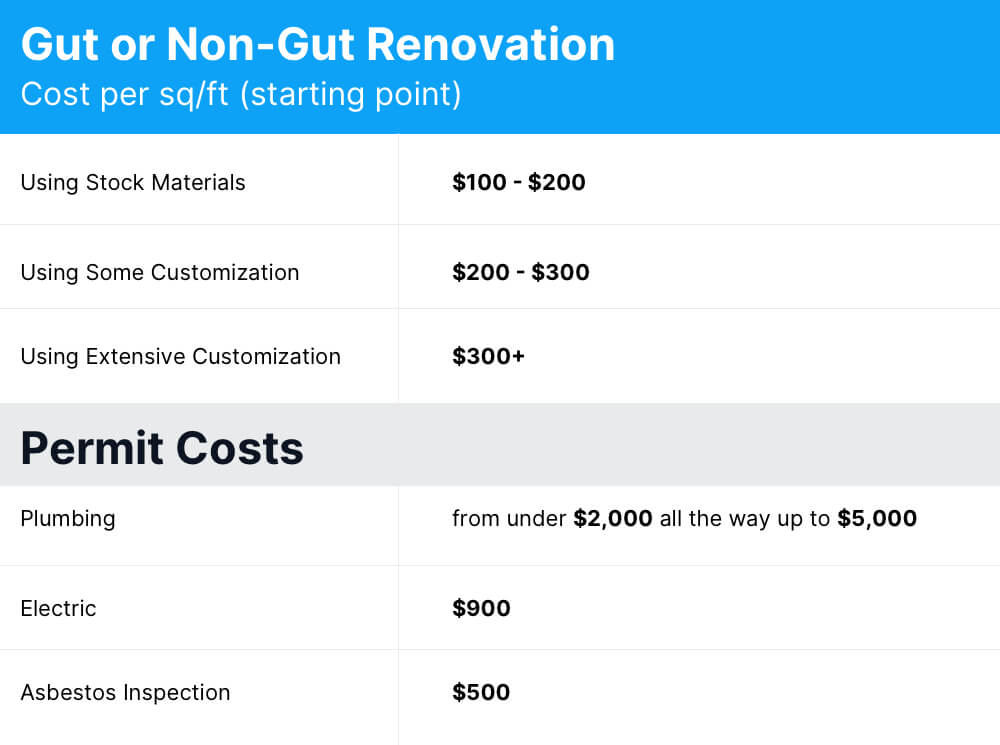
Given that New York City apartments vary widely and can present unique challenges, a per-square-foot estimate is really a ballpark figure for you to get started. Here’s an overview:
Basic costs for an NYC home renovation
When estimating price per square foot, the scope of work usually includes the following:
- Basic demolition
- Framing: the skeletal, load-bearing structure to which the interior walls and other systems are attached
- Insulation and drywall
- Wiring, including outlets and switches
- Plumbing
- Heating/cooling systems
- All visible materials and fixtures in kitchens and baths (described below)
This doesn’t include appliances. Also bear in mind that the choices you make for visible materials—tile, flooring, millwork, paint, lighting fixtures, electronics, and more—can significantly affect the price of your renovation.
At the $100 to $200 psf range:
- Materials are generally prefabricated or stock items and in finishes that are available at common retail outlets.
- Cabinets in this price range are typically MDF (medium-density fiberboard).
- Tiling will run under $10 psf.
- Lighting will be standard but solid basics.
- Solid wood floors may be shorter, narrower planks made of less expensive woods.
- The work will be careful, clean, and well-installed at this level with higher quality labor and skillsets at the upper end of the range.
At $200 to $300 psf range:
- Some customization on details such as joints, millwork, and hardware
- Cabinets are custom or semi-custom and can include built-ins.
- Countertops in natural stone or high-quality manufactured materials.
- Solid, wide-planked hardwood flooring
- Projects at this price point are not usually gut renovations, but rather remodels that focus on the space within the existing walls.
One thing to note: While Sweeten contractors attempt to explore all avenues to stay competitive, it is an industry that is affected by trade. The prices you’re quoted at any given time may not be the same six months or a year from now. Prices on labor and materials fluctuate and this will be reflected in your overall quote.
At Sweeten, we’re experts at all things general contractors — we pre-screen them for our network, carefully select the best ones for your remodeling project, and work closely with hundreds of general contractors every day. So, we’ve tapped our internal expertise to bring you this guide.
What you’ll get for $300 per square foot and higher:
- $300 psf or above will usually pay for layout changes or structural work, such as combining apartments.
- Moving walls, adding staircases, shifting gas and plumbing, and electrical rewiring all contribute to a higher per-square-foot cost, as well as add to the behind-the-scenes expenditures (more on that below).
- Since pricing for kitchens and baths runs higher than other rooms, more of those equal a higher price per square foot. For example, renovating a 1,000-square-foot apartment that has three bathrooms will be more expensive than an apartment of the same size with just one bathroom.
At this level and beyond, you can expect to see more extensive customization, fine finishes, and luxurious materials. This includes handmade tile, exotic wood grains, natural stone, and custom millwork details that complement the home’s architecture. You might also see custom door casements and extensive lighting details.
1. Design
Depending on your general contractor and your level of involvement in the project, you may also want or need professional design services.
Renovate expertly with Sweeten
Sweeten brings homeowners an exceptional renovation experience by personally matching trusted general contractors to your project, while offering expert guidance and support—at no cost to you.
- You may need an architect. Architect approvals are required any time you make changes to the structure or to plumbing or gas lines. Many Sweeten general contractors in NYC can refer architects for your project.
- You may consider a design/build firm, which combines design and construction services within one fee and contract.
2. Building and city requirements
If you reside in a cooperative or condominium building, you’ll likely need to submit architectural plans to your building’s board for approval. Cooperatives generally have stricter renovation regulations compared to condominiums, although many condos are now adopting more stringent rules. Buildings may also have minimum construction insurance requirements.
Some alteration agreements require a security deposit to cover potential damages. Additionally, you might incur fees associated with the condo or co-op board’s review and approval process. Contractors who can work in buildings with more extensive requirements often have higher rates to meet insurance regulations.
The NYC Department of Buildings mandates permits and inspections for various construction work, including plumbing, electrical, and structural work. These permits can add significant costs, with electrical permits reaching around $900, plumbing permits ranging from $2,000 to $5,000, and asbestos inspections costing approximately $500.
3. Demolition and site prep
Depending on the original space’s condition, you might need extensive preparatory work after demolition and before installation. Older apartments often require stripping, leveling, and plastering. Uneven floors and walls must be leveled to accommodate cabinets, doors, and tiling. These costs are determined by the general contractor upon inspecting your space.
4. Behind-the-scenes costs
Sweeten general contractors have observed a significant increase in wood material costs, approximately 3 times the previous amounts. This directly impacts the cost of plywood subfloors, kitchen cabinets, and other woodwork-related projects.
“Unseen” costs can be challenging to anticipate compared to the “visible” parts of your renovation. While labor is a clear component, different types of labor have varying prices. Wiring and plumbing work, for example, tend to be expensive. Due to increased safety measures and certifications imposed by the Department of Buildings, master plumbers and electricians have experienced rising costs.
Plumbing typically ranges from $1,500 to $2,000 per fixture in New York City. Expect at least $5,000 for a licensed plumber to install new lines for a sink, toilet, and bathtub. Skim coating, a technique for smoothing walls, is the most expensive type of labor. In some cases, it might be more cost-effective to replace old walls with new drywall.
From the contractor’s perspective, “labor” on the budget proposal may include not only hourly wages but also insurance, licensing, and overhead fees. Contractors typically retain a profit margin of 10-15%. For example, a contractor generating $2 million in business annually might net around $200,000. Insurance and operational costs increase yearly, leading to price adjustments to maintain operations. Some contractors include a specific line for profit/overhead on the budget, while others integrate it into other budget lines.
Tips on how to budget your NYC home renovation
Once you’ve accounted for each line item in your budget, allocate an additional 10 to 15 percent as a cushion. Projects can run over budget as a result of unforeseen circumstances, so it’s good to err on the safe side.
Many factors go into the per-square-foot estimates. Trying to come up with a plan to match your budget? Here are some tips from contractors and renovating homeowners:
Mix high and low. This refers to materials, which should be selected for maximum impact. You may choose a handmade tile for the kitchen backsplash while sticking to an off-the-shelf option for the second bath. Make a custom statement where it will really get noticed, and use standard materials where it won’t.
Don’t skimp on plumbing and electrical infrastructure. Although these aspects probably won’t get you many compliments at a dinner party, you still need licensed and qualified experts for these jobs. If you don’t, there may be expensive problems to deal with in the long run.
Focus on kitchens and baths. Spend your money here! A kitchen upgrade and a refreshed bathroom have the most resale value impact.
Consult experts upfront. If you are inclined to hire an architect or designer for a major transformation, get them on board early. This can save money by mapping out a clear plan, helping you avoid costly changes mid-stream. Set aside 15 to 20 percent of your budget for this professional. In general, hiring licensed professionals early is a cost-effective way to prevent insurance headaches later on by using their expertise to avoid mistakes that can lead to delays.
When you’re ready to get started on your home remodel, work with Sweeten to renovate with the best contractors in NYC.
Not sure how to start your renovation? Click here for Sweeten’s six steps on planning your remodel and how to find a vetted general contractor.
We can help you plan your renovation
Find endless home renovation inspiration, detailed guides, and practical cost breakdowns from our blogs. You can also post your project on Sweeten today and get matched with our vetted general contractors and get estimates for free!
FAQs
An average full-home renovation in NYC will cost between $100-200 per square foot. A gut renovation will start at the higher end of the $100-$200 psf range. “Wet spaces” with plumbing have higher gut costs: kitchens will cost, on average, $300 per square foot, and bathrooms, $400 psf. Gut renovating dry spaces without plumbing will cost between $30–$50 psf.
The visible parts of a bathroom—tile, sinks, vanities, tubs/showers—will directly impact end costs, as will the type of work being done (gut renovation vs. rip-and-replace.) In New York City, a budget remodel of a bathroom will start at $600 psf; or $21,000 for a 35 square-foot space. Mid-grade bathrooms start at $700 psf, or $24,500 for a 35 square-foot space. High-end remodels will start at $850 psf, or $68,000 for an 80 square-foot space.
Kitchen and bathroom renovations have the most resale value in NYC homes. Even doing a more budget-friendly “rip-and-replace” renovation (where old appliances and cabinets are swapped out for new ones, with no changes made to the room layout,) can lead to returns when selling in the competitive NYC housing market.
